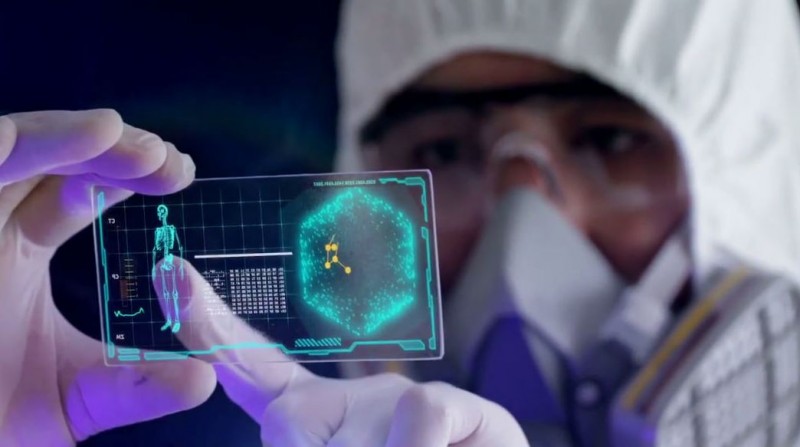
In recent years, advancements in science and technology have led to an exciting intersection between biology and technology known as biohacking. This emerging field aims to enhance human capabilities by leveraging cutting-edge tools and techniques. From optimizing physical performance to augmenting cognitive abilities, biohacking offers a realm of possibilities for human enhancement. This article delves into the fascinating world of biohacking, exploring its applications, ethical considerations, and potential impact on the future of humanity.
Understanding Biohacking
What is Biohacking?
Biohacking refers to the practice of using scientific and technological tools to alter biological systems, either within oneself or others, to achieve desired outcomes. It encompasses a broad range of activities, from lifestyle changes and DIY biology to the use of implants and other biotechnological advancements.
The Roots of Biohacking
The origins of biohacking can be traced back to the early days of the DIY biology movement, which emerged in the late 20th century. Enthusiastic individuals, often operating outside traditional scientific institutions, began exploring genetic engineering and other biological experiments. Over time, this grassroots movement evolved into the more sophisticated field of biohacking seen today.
The Biohacker Mindset
Biohackers typically share a mindset characterized by a relentless curiosity, a passion for self-improvement, and a do-it-yourself ethos. They embrace experimentation and self-monitoring, using data-driven approaches to optimize their bodies and minds.
Biohacking and Physical Enhancement
Fitness and Performance Optimization
Biohacking has attracted fitness enthusiasts seeking ways to enhance their physical performance. By analyzing their own genetic makeup and biochemistry, individuals can tailor exercise routines and nutrition plans to suit their unique needs. Additionally, wearable devices and smart implants allow for real-time monitoring of vital signs and performance metrics.
DIY Biology: Exploring Personal Genomics
With the availability of affordable DNA sequencing, biohackers can delve into their genetic information. This allows them to identify potential health risks and optimize lifestyle choices based on their genetic predispositions. However, this area also raises ethical concerns related to privacy and data security.
Implantable Technology for Health Monitoring
Implantable devices, such as microchips or sensors, offer continuous health monitoring and data collection. These devices can track vital signs, hormone levels, and even detect the early signs of diseases, enabling proactive intervention and personalized healthcare.
Cognitive Enhancement through Biohacking
Nootropics: Boosting Brain Function
Nootropics, often referred to as "smart drugs" or "cognitive enhancers," are substances that aim to improve cognitive function, memory, creativity, and focus. Some biohackers experiment with various nootropics to optimize their mental capabilities, but caution must be exercised due to potential side effects and long-term risks.
Brain-Computer Interfaces (BCIs)
Brain-Computer Interfaces (BCIs) are revolutionary technologies that allow direct communication between the human brain and external devices. BCIs have the potential to assist individuals with disabilities, enable brain-controlled prosthetics, and open up new avenues for brain-to-brain communication.
Memory Augmentation Techniques
Some biohackers explore memory augmentation techniques to enhance their ability to retain and recall information. These methods range from mental exercises and lifestyle changes to more experimental approaches that involve brain stimulation.
The Ethics of Human Enhancement
Balancing Benefits and Risks
The pursuit of human enhancement through biohacking raises ethical dilemmas. While potential benefits are enticing, it is crucial to weigh them against potential risks, including unforeseen consequences and unintended side effects.
Informed Consent and Autonomy
Biohacking interventions, especially those involving experimental procedures, require informed consent from participants. Respecting individuals' autonomy and ensuring they understand the potential risks is essential in ethically navigating this field.
Ensuring Equitable Access
As biohacking technologies advance, there is a risk that they could exacerbate existing social inequalities. Ensuring equitable access to biohacking interventions is vital to prevent further disparities in society.
The Future of Biohacking
Integration with Artificial Intelligence
The integration of biohacking with artificial intelligence (AI) holds tremendous potential. AI can analyze vast amounts of data from biohacking experiments, providing valuable insights for personalized interventions and enhancing the efficiency of biohacking practices.
Biohacking and Longevity
One of the most ambitious goals of biohacking is to extend human lifespan and improve healthspan—the period of life spent in good health. By addressing aging and age-related diseases, biohackers aim to promote healthier and longer lives.
Addressing Societal Concerns
As biohacking gains popularity, it is essential to address societal concerns and engage in open dialogues about its implications. Regulation, safety measures, and ethical guidelines must be established to promote responsible and beneficial biohacking practices.
Biohacking represents a captivating journey at the confluence of biology and technology. As individuals explore the vast realm of human enhancement, they must balance their pursuit of optimization with ethical considerations. The future of biohacking holds the promise of unlocking the full potential of humanity, but it requires thoughtful navigation and a collective commitment to ethical practices.
AI-Generated Art: Exploring Creativity and Machine Learning
The Rise of Smart Cities: Urban Planning and IoT Integration
TikTok Debuts Music Streaming Service in Australia, Mexico, and Singapore